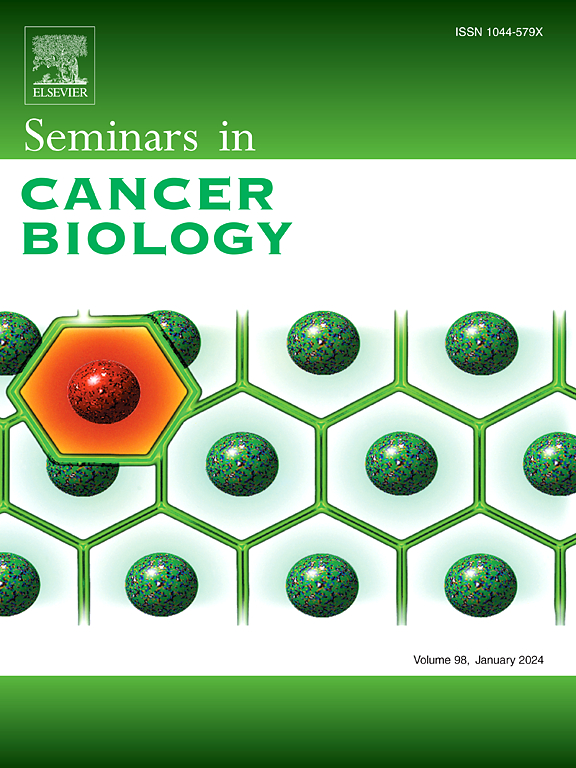心理压力对癌症进展和免疫衰老的影响。
IF 12.1
1区 医学
Q1 ONCOLOGY
引用次数: 0
摘要
癌症的诊断和治疗是一种非常紧张的经历,涉及独特和常见的问题,并产生不确定性、恐惧和情绪困扰。此外,在临床环境中,心理压力和癌症之间存在相互作用。因此,了解压力与癌症之间的联系是至关重要的。越来越多的流行病学和临床前研究表明,压力会影响癌症的进展、转移和治疗结果。此外,压力会引起免疫系统的过早衰老和退化(称为免疫衰老),导致感染、自身免疫性疾病和癌症的易感性。在这篇综述中,我们描述了压力如何通过特定的应激激素和受体系统以及细胞内分子过程影响癌症进展的最新进展,并讨论了应激诱发的神经内分泌分子如何调节肿瘤微环境中的局部和全身免疫反应。此外,我们回顾了免疫衰老的分子机制和心理应激诱发免疫衰老的证据,强调了癌症患者心理应激的可用心理和/或药物干预的临床价值。基于现有证据和新出现的机制见解,在未来的研究中需要确定与癌症幸存者的心理压力、免疫衰老和并发症相关的因素,并应在随访中增加筛查计划。本文章由计算机程序翻译,如有差异,请以英文原文为准。
Psychological stress on cancer progression and immunosenescence
Diagnosis and treatment of cancer constitute a deeply stressful experience that involves unique and common problems and generates uncertainty, fear and emotional distress. Furthermore, there are reciprocal interactions between psychological stress and cancer in the clinical settings. Therefore, it is crucial to understand the links of stress with cancer. A growing body of epidemiological and preclinical studies have suggested that stress affects cancer progression, and metastasis and treatment outcomes. Furthermore, stress elicits premature aging and deterioration of the immune system (known as immunosenescence), causing vulnerability to infections, autoimmune diseases, and cancers. In this review, we describe recent advances in how stress affects cancer progression through specific stress hormones and receptor systems as well as intracellular molecular processes, and discuss how stress-evoked neuroendocrine molecules regulate local and systemic immune responses in the tumor microenvironment. Furthermore, we review the molecular mechanisms of immunosenescence and evidence of psychological stress-evoked immunosenescence, highlighting the clinical value for available psychological and/or pharmacological interventions for psychological stress in patients with cancer. Based on existing evidence and emerging mechanistic insights, factors linked with psychological stress, immunosenescence and complications in cancer survivors need to be determined in future studies, and screening programs should be added to follow-up.
求助全文
通过发布文献求助,成功后即可免费获取论文全文。
去求助
来源期刊

Seminars in cancer biology
医学-肿瘤学
CiteScore
26.80
自引率
4.10%
发文量
347
审稿时长
15.1 weeks
期刊介绍:
Seminars in Cancer Biology (YSCBI) is a specialized review journal that focuses on the field of molecular oncology. Its primary objective is to keep scientists up-to-date with the latest developments in this field.
The journal adopts a thematic approach, dedicating each issue to an important topic of interest to cancer biologists. These topics cover a range of research areas, including the underlying genetic and molecular causes of cellular transformation and cancer, as well as the molecular basis of potential therapies.
To ensure the highest quality and expertise, every issue is supervised by a guest editor or editors who are internationally recognized experts in the respective field. Each issue features approximately eight to twelve authoritative invited reviews that cover various aspects of the chosen subject area.
The ultimate goal of each issue of YSCBI is to offer a cohesive, easily comprehensible, and engaging overview of the selected topic. The journal strives to provide scientists with a coordinated and lively examination of the latest developments in the field of molecular oncology.
 求助内容:
求助内容: 应助结果提醒方式:
应助结果提醒方式:


